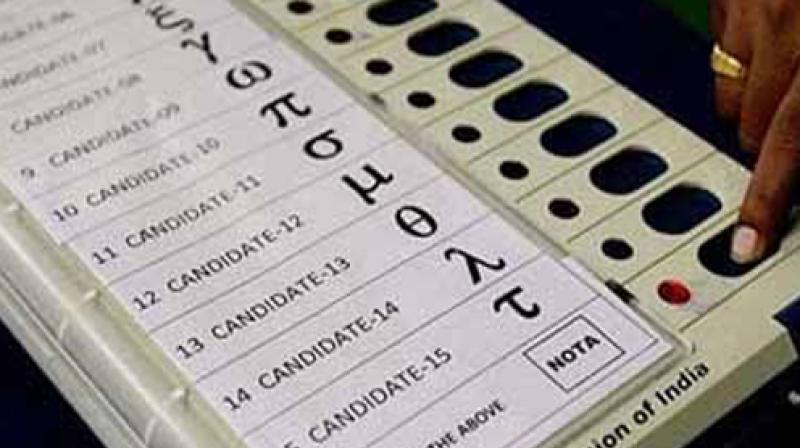Turnout reflects lack of ‘inspiring’ candidates
Many leaders in fray lacked connect with people.

Hyderabad: The dismal voting turnout in urban areas should be an eye-opener for political parties, as more than 55 per cent of the electorate did not vote. Political experts lay the blame at the door of political parties, saying their choice of candidates did not inspire people to vote. They said that the candidates fielded by all political parties lacked public connect, lacked faith and integrity and did not earn the trust of the educated to come out and vote.
These politicians have been relying on about 2,000 slums spread across urban areas and the turnout in successive elections speaks volumes. Experts said that the polling percentage would dip further if political parties did not change their strategies. Though the voting percentage in urban areas has been dipping, no government has made an attempt, either to enhance the voting percentage or analyse the reasons for low turnout. Experts said that if the names of the estimated 18 per cent dead voters were removed from the electoral rolls, the voting percentage in cities would not cross 30 per cent.
Governments did not make any attempt to involve urban voters fearing anti-incumbency. No political manifesto took the urban voter or her concerns into consideration, and this kept away them from polling. Governments did not frame any policy for the educated living in the city. Factors like unemployment also kept voters out. It is the voter living in slums spread cross Hyderabad who saves political parties. The parties woo them with cash, liquor and 2BHK houses.
Political analyst V. Prakash Rao said that over the past 30 years, governments run by different parties have failed to analyse the reasons for poor voting and bring more voters to the booths. He said that educated voters in the age group of 25 years and 45 years were boycotting the elections as they could not see any benefit from going out and voting. Mr Rao said elderly people and about three per cent of first-time voters have been exercising their franchise regularly. Political parties feel that if intellectual and middle class voters step out and vote, it would be boomerang for them since they would consider several factors, including government policies, manifestoes, eligibility and background of the contesting candidates and hence they have been strategically avoided.
Mr Rao said intellectual groups have been coming out and voting at the time of anti-incumbency. Voting percentage in Hyderabad has dropped since the Election Commission minimised rigging. “I appeal to government to seriously analyse the ways to enhance the voting percentage in urban areas at least by the next election,” he added.
Mr M. Padmanabha Reddy, secretary, Forum for Good Governance (FGG), opined that welfare schemes announced by governments do not connect with citizens residing in urban areas. He said that current welfare schemes like Rythu Bandhu, Rythu Bhima Asara Pensions, employment guarantee and others do not relate to urban voters. Mr Reddy said that the contesting candidates fit to contest in municipal polls were in the fray for the Legislative Assembly and Lok Sabha polls. He said the there should be an end to legacy politics and migrating leaders.
“Without fielding eligible candidates, the voting percentage in cities will not improve. The EC, which has been successful in conducting free elections, has to now concentrate on fair elections. It should reduce the influence of cash, liquor and others during the polls. The EC should also rectify the errors in the electoral list. During the current elections, Secunderabad constituency has the names of dead voters in the electoral list. The number was a whopping 18 per cent; if 18 per cent is deducted the voter turnout will not cross 30 per cent,” he said.

